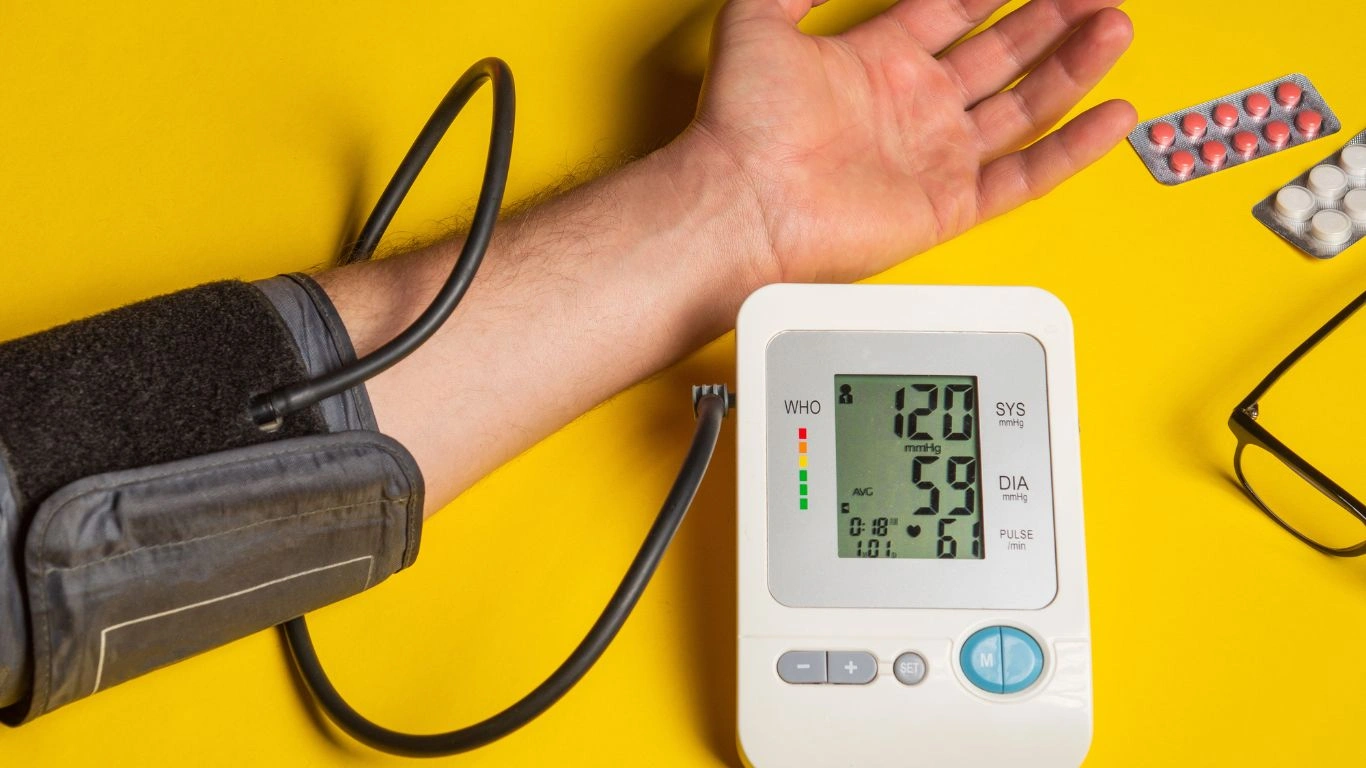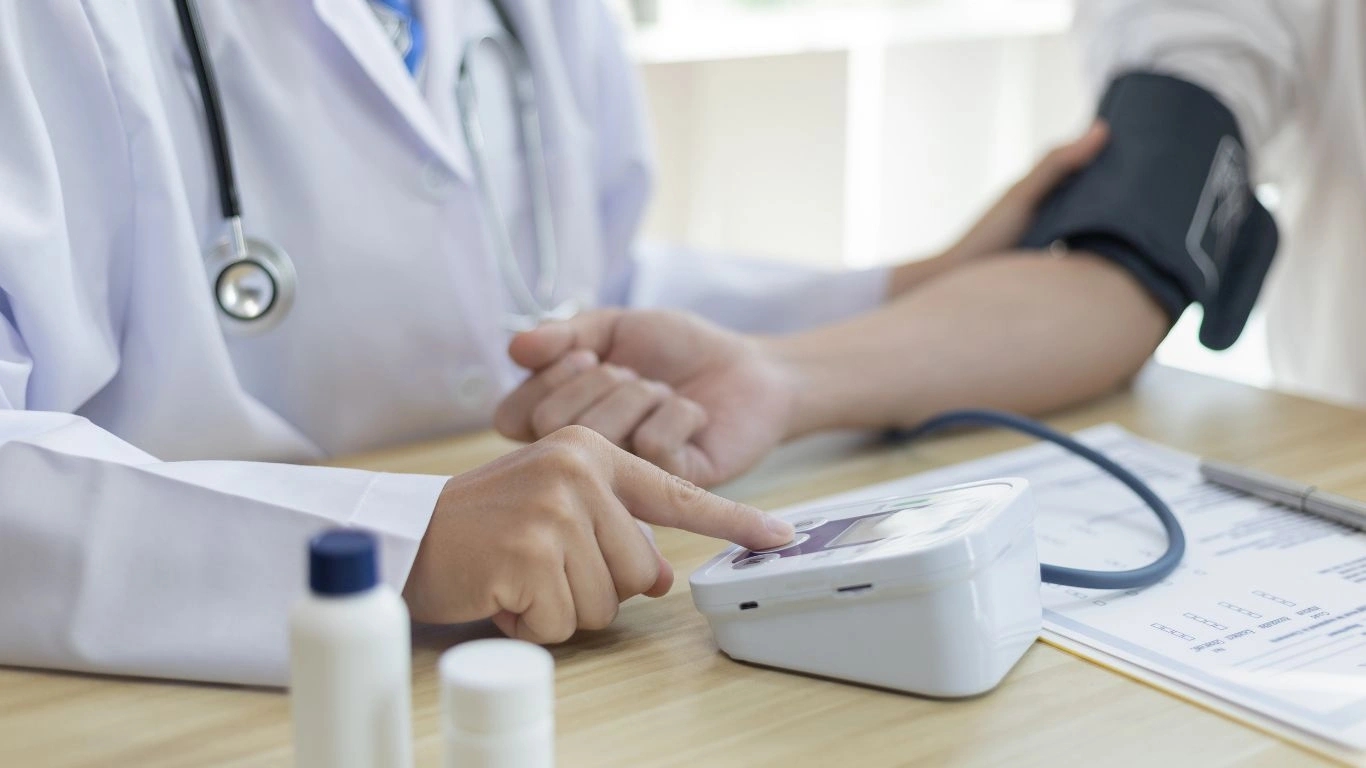Intermittent Fasting for Hypertension Control: The Powerful Benefits for Your Health
As a hypertension expert, I’ve seen firsthand how lifestyle changes can have a profound impact on blood pressure control. Among the many strategies that have emerged over the years, one that’s garnered increasing attention is intermittent fasting. In fact, when it comes to hypertension, the role of intermittent fasting in hypertension control has been the subject of numerous studies, and I’ve seen positive results in many of my patients. But does intermittent fasting really live up to its promise when it comes to managing high blood pressure? Let’s dive in and explore how this practice may benefit those struggling with hypertension.
What Is Intermittent Fasting?
Before we get into how intermittent fasting (IF) could help with hypertension, let’s take a quick step back and define what it actually is. Essentially, intermittent fasting is an eating pattern where you cycle between periods of eating and fasting. There are various methods, but some of the most popular include:
- 16/8 Method: Fast for 16 hours and eat within an 8-hour window.
- 5:2 Method: Eat normally for 5 days, but restrict calorie intake to about 500-600 calories for 2 non-consecutive days.
- Alternate-Day Fasting: Alternate between fasting days and regular eating days.
The common thread between these methods is the extended period of fasting, which forces your body to use its energy reserves (primarily stored fat). But how does this relate to hypertension?
How Does Intermittent Fasting Impact Blood Pressure?
Studies have shown that intermittent fasting may play a significant role in reducing blood pressure, and I can tell you from my own experience with patients that it can be incredibly effective for some people. But the relationship isn’t just about weight loss (though that is certainly one of the benefits!). Let’s break down the physiological mechanisms behind this.
1. Improved Insulin Sensitivity
When we eat, our bodies produce insulin to help regulate blood sugar levels. Over time, if we overeat or eat foods that cause our blood sugar to spike and crash, our bodies can become less responsive to insulin. This is known as insulin resistance, and it’s closely linked to high blood pressure. The good news is that intermittent fasting has been shown to improve insulin sensitivity. When insulin levels are stable, it helps to reduce inflammation in the blood vessels, leading to lower blood pressure.
2. Weight Loss and Its Effect on Blood Pressure
If you’re struggling with hypertension, you’ve probably heard about the importance of weight management. Losing excess weight can significantly lower your blood pressure. One of the major benefits of intermittent fasting is its potential to promote weight loss by reducing overall calorie intake. With IF, your eating windows are restricted, naturally leading to a decrease in the number of calories you consume. Plus, the fasting periods may encourage your body to burn fat more effectively, which can have a direct impact on lowering blood pressure.

3. Reduction in Inflammation
Inflammation is another key factor in the development and progression of high blood pressure. Chronic inflammation can damage blood vessels and lead to arterial stiffness, which can raise your blood pressure. Some research suggests that intermittent fasting can help to reduce inflammation, potentially improving overall vascular health. This is one reason I’ve seen improvements in blood pressure in some of my patients who have adopted intermittent fasting into their routine.
The Science Behind Intermittent Fasting and Hypertension Control
At this point, you might be wondering, “Does the science back this up?” And the answer is yes, there’s growing evidence supporting the idea that intermittent fasting can have a positive impact on hypertension. Several clinical trials have looked at the effects of IF on blood pressure, with promising results.
What Studies Say
A study published in the journal Cell Metabolism found that participants who followed an intermittent fasting regimen showed significant improvements in blood pressure, as well as other metabolic markers, including cholesterol and blood sugar levels. Another study in The American Journal of Clinical Nutrition highlighted how intermittent fasting not only helped with weight loss but also led to improvements in blood pressure, especially among those who were overweight or obese.

The Role of Autophagy in Blood Pressure Control
One of the most fascinating aspects of intermittent fasting is its ability to trigger a process called autophagy, which is essentially the body’s way of cleaning out damaged cells and regenerating new ones. This process helps improve cellular health, including the cells that make up the blood vessels. Healthier blood vessels are better able to withstand the pressure of blood flow, leading to more stable blood pressure levels.
Should You Try Intermittent Fasting for Hypertension?
If you’re considering intermittent fasting as a way to manage your hypertension, it’s important to consult with your doctor first. While IF may offer benefits, it’s not a one-size-fits-all solution, and it might not be suitable for everyone. For example, those with certain medical conditions, such as diabetes or eating disorders, should exercise caution.
In my experience, many patients who are new to fasting find that it’s easier than they initially thought. It’s not about depriving yourself but about giving your body a break from constant digestion, which allows it to focus on repair and regeneration. Plus, you don’t have to give up all your favorite foods—just eat them in a way that supports your overall health.

The Benefits of Intermittent Fasting Beyond Blood Pressure
While the effects of intermittent fasting on hypertension are significant, there’s more to the story. Intermittent fasting isn’t just about lowering blood pressure—it can improve your overall health in a variety of ways. As someone who has worked with many patients over the years, I’ve seen how adopting IF can lead to benefits beyond what you might expect, even in those without hypertension. Let’s take a deeper dive into the many ways this eating pattern can benefit your health.
Improved Heart Health
We can’t talk about hypertension without discussing heart health. High blood pressure is one of the leading risk factors for cardiovascular disease, so finding ways to manage it is crucial. Interestingly, intermittent fasting has been linked to better heart health by improving cholesterol levels, reducing inflammation, and supporting better blood sugar control.
Several studies have shown that IF can reduce levels of low-density lipoprotein (LDL), which is often referred to as “bad cholesterol.” At the same time, it can increase high-density lipoprotein (HDL), or “good cholesterol.” Maintaining a healthy balance between these two is key to preventing heart disease, and intermittent fasting could help you do just that.

Enhanced Brain Function and Mental Clarity
One of the perks I hear most often from people who practice intermittent fasting is the improvement in mental clarity. This has been something I’ve personally noticed, too! The process of fasting triggers the production of brain-derived neurotrophic factor (BDNF), a protein that promotes brain health and cognitive function. This can result in improved focus, clearer thinking, and potentially even a lower risk of neurodegenerative diseases.
From a hypertension perspective, it’s worth mentioning that a healthier brain contributes to overall well-being and may help reduce stress, a common trigger for high blood pressure. So, while your mind is sharpening, your heart benefits too!
Better Blood Sugar Regulation
Another area where intermittent fasting has shown promise is in blood sugar regulation. For people with high blood pressure, controlling blood sugar is crucial. The good news is that intermittent fasting can help stabilize insulin and glucose levels, which may reduce the risk of type 2 diabetes—another condition often linked with hypertension.
Even if you don’t have diabetes, maintaining steady blood sugar can support healthier blood pressure levels. By improving insulin sensitivity and reducing the body’s need for excess insulin production, intermittent fasting helps to prevent the spikes and crashes in blood sugar that can increase your risk of hypertension.
How to Get Started with Intermittent Fasting for Hypertension Control
If you’re feeling inspired to give intermittent fasting a try, it’s important to start slowly and listen to your body. It can be tough at first, especially if you’re used to eating regularly throughout the day, but with a little patience, it’s entirely possible to adjust. As someone who’s guided many patients through the process, here are some of my best tips for getting started with intermittent fasting:
1. Start With a Simple Approach
Don’t overwhelm yourself with complex fasting regimens right out of the gate. I always recommend starting with the 16/8 method, which involves fasting for 16 hours and eating within an 8-hour window. It’s the simplest approach and easy to incorporate into your daily routine. For instance, you could eat from 12 pm to 8 pm and fast from 8 pm to 12 pm the next day. This window works for many people because it allows for a natural eating pattern while still promoting the benefits of fasting.
2. Focus on Nutrient-Dense Foods During Eating Windows
Intermittent fasting isn’t an excuse to binge on unhealthy foods during your eating window. If you’re fasting to manage your hypertension, it’s important to prioritize foods that support heart health. That means loading up on fruits, vegetables, lean proteins, and whole grains during your eating windows. Avoid highly processed foods, as they tend to be high in sodium and unhealthy fats, which can worsen blood pressure.
Some of the best foods for lowering blood pressure include leafy greens (like spinach and kale), fatty fish (like salmon and mackerel), and nuts and seeds. These foods are packed with nutrients like potassium, magnesium, and omega-3 fatty acids, which have been shown to help lower blood pressure.

3. Stay Hydrated
One mistake I see many people make when they start intermittent fasting is forgetting to drink enough water. Since you’re not eating during fasting periods, you might forget to hydrate, but staying properly hydrated is key to keeping your body functioning optimally—especially when it comes to maintaining healthy blood pressure levels. Aim to drink water throughout the day, and if you’re craving something more flavorful, herbal teas are a great option too.
Challenges and Considerations When Using Intermittent Fasting for Hypertension
As with any lifestyle change, intermittent fasting comes with its own set of challenges. While many people find it beneficial, it’s not a perfect fit for everyone. As a hypertension expert, I’m always mindful that intermittent fasting might not be suitable for people with certain medical conditions, such as eating disorders, pregnancy, or other metabolic conditions.
Additionally, some people may experience initial side effects when starting intermittent fasting, including fatigue, irritability, or headaches. These side effects are usually temporary and can be managed by adjusting your eating schedule or by making sure you’re consuming enough nutrients during your eating windows.
When to Consult Your Doctor
Before you start intermittent fasting, especially if you have hypertension, it’s important to talk to your healthcare provider. Your doctor can help you assess whether IF is a good option for you based on your individual health needs. They can also monitor your progress and ensure that fasting isn’t interfering with any medications or other treatments you’re using for blood pressure management.

How Long Does It Take to See Results from Intermittent Fasting?
If you’re wondering how long it might take before you start seeing the benefits of intermittent fasting on your hypertension, it’s important to set realistic expectations. While every individual is different, many people begin to see changes within the first few weeks. In my experience, some of my patients report feeling better and noticing reductions in their blood pressure after about 2 to 4 weeks of consistent fasting. However, for others, it may take longer to see significant drops in blood pressure or other related benefits.
It’s essential to understand that intermittent fasting isn’t a quick fix. It’s a long-term strategy that works best when combined with other healthy habits, such as regular physical activity and a balanced diet. The effects on blood pressure can be gradual, but they’re often sustained if you maintain your fasting routine and make other positive lifestyle changes.
For patients dealing with hypertension, the key to success is consistency. While you might not see drastic changes overnight, sticking to a regular fasting schedule can slowly lead to improvements in blood pressure, heart health, and overall wellness. Remember, it’s all about the long game!
Additional Lifestyle Tips for Managing Hypertension Alongside Intermittent Fasting
Intermittent fasting can certainly be a game-changer in hypertension management, but it’s just one piece of the puzzle. To truly optimize your results, it’s important to make a few other lifestyle changes that can further support healthy blood pressure levels. Over the years, I’ve seen many patients combine fasting with a few other practices to see maximum benefits.
1. Regular Exercise
Incorporating regular exercise into your routine is one of the most effective ways to manage hypertension. Whether it’s walking, swimming, or weight training, staying active helps to improve blood circulation, reduce stress, and keep your heart strong. The combination of intermittent fasting and exercise can accelerate weight loss, improve your cardiovascular health, and even boost the effectiveness of your fasting routine.
For those with hypertension, aim for at least 150 minutes of moderate aerobic activity or 75 minutes of vigorous activity each week. I always recommend that my patients start slowly, especially if they haven’t been active for a while, and gradually increase their exercise intensity over time. It’s all about finding a routine that works for you and supports your overall health goals.
2. Reducing Stress
Chronic stress is a major contributor to high blood pressure. One of the things I often talk about with my patients is the importance of managing stress. Intermittent fasting can help reduce stress in some people, as fasting allows your body to rest from constant digestion, which can be taxing. But outside of fasting, you’ll also want to incorporate relaxation techniques into your daily routine.
Mindfulness, deep breathing exercises, and yoga can all be effective tools for lowering stress levels. Even something as simple as taking a few minutes each day to practice gratitude or just sit quietly can make a big difference. Stress management isn’t just about reducing the mental load; it can also reduce the strain on your heart and help regulate blood pressure.

3. Healthy Eating Habits
We’ve already touched on the importance of eating nutrient-dense foods during your fasting window, but let’s take a moment to talk about healthy eating habits in general. Eating a diet rich in potassium, magnesium, and fiber can support lower blood pressure. You can find these nutrients in foods like bananas, avocados, beans, and leafy greens. Also, keeping sodium intake in check is crucial for managing hypertension. Too much salt can cause your body to retain fluid, which increases blood pressure.
As part of your overall hypertension management, aim to follow the DASH (Dietary Approaches to Stop Hypertension) diet. The DASH diet emphasizes fruits, vegetables, whole grains, and low-fat dairy while minimizing processed foods, sodium, and added sugars. I’ve recommended this diet to many patients over the years, and it’s proven to be incredibly effective in helping people control their blood pressure.
The Potential Risks of Intermittent Fasting for Hypertension
While intermittent fasting can be highly beneficial for many people with hypertension, it’s essential to recognize that it might not be for everyone. In some cases, fasting can cause an increase in stress hormones like cortisol, especially if done too aggressively or without proper nutrition. For people with already elevated stress levels, this could potentially make things worse.
Additionally, if you are taking medication for hypertension, it’s crucial to consult with your doctor before starting intermittent fasting. Sometimes, medications might need to be adjusted as you lose weight or experience changes in your blood pressure during fasting. It’s always best to have a healthcare professional monitoring your progress to ensure you’re doing it safely and effectively.
Final Thoughts on Intermittent Fasting for Hypertension Control
Intermittent fasting holds a lot of promise as a tool for managing hypertension. From reducing blood pressure to improving overall health, there’s no denying that fasting can have a positive impact on those dealing with high blood pressure. However, it’s not a magic bullet. For best results, intermittent fasting should be combined with other healthy habits like regular exercise, stress management, and a balanced diet.
As a hypertension expert, I can say that everyone’s journey to better health is different, and what works for one person might not work for another. But if you’re looking for a strategy to help you manage your blood pressure, intermittent fasting might just be the tool you’ve been searching for. Be sure to work closely with your healthcare provider, listen to your body, and give it time to see results.

References
For more information on hypertension and the benefits of intermittent fasting, check out these trusted resources:
- Research on Hypertension and Intermittent Fasting
- Nutritional Guidelines for Hypertension
- The DASH Diet for Hypertension
Disclaimer
While intermittent fasting can offer potential benefits for hypertension management, it’s important to consult with your healthcare provider before making any significant changes to your diet or lifestyle, especially if you are currently taking medication or have any underlying health conditions. This article is for informational purposes only and should not be used as medical advice.

Dr. Gwenna Aazee is a board-certified Internal Medicine Physician with a special focus on hypertension management, chronic disease prevention, and patient education. With years of experience in both clinical practice and medical writing, she’s passionate about turning evidence-based medicine into accessible, actionable advice. Through her work at Healthusias.com, Dr. Aazee empowers readers to take charge of their health with confidence and clarity. Off the clock, she enjoys deep dives into nutrition research, long walks with her rescue pup, and simplifying medical jargon one article at a time.







